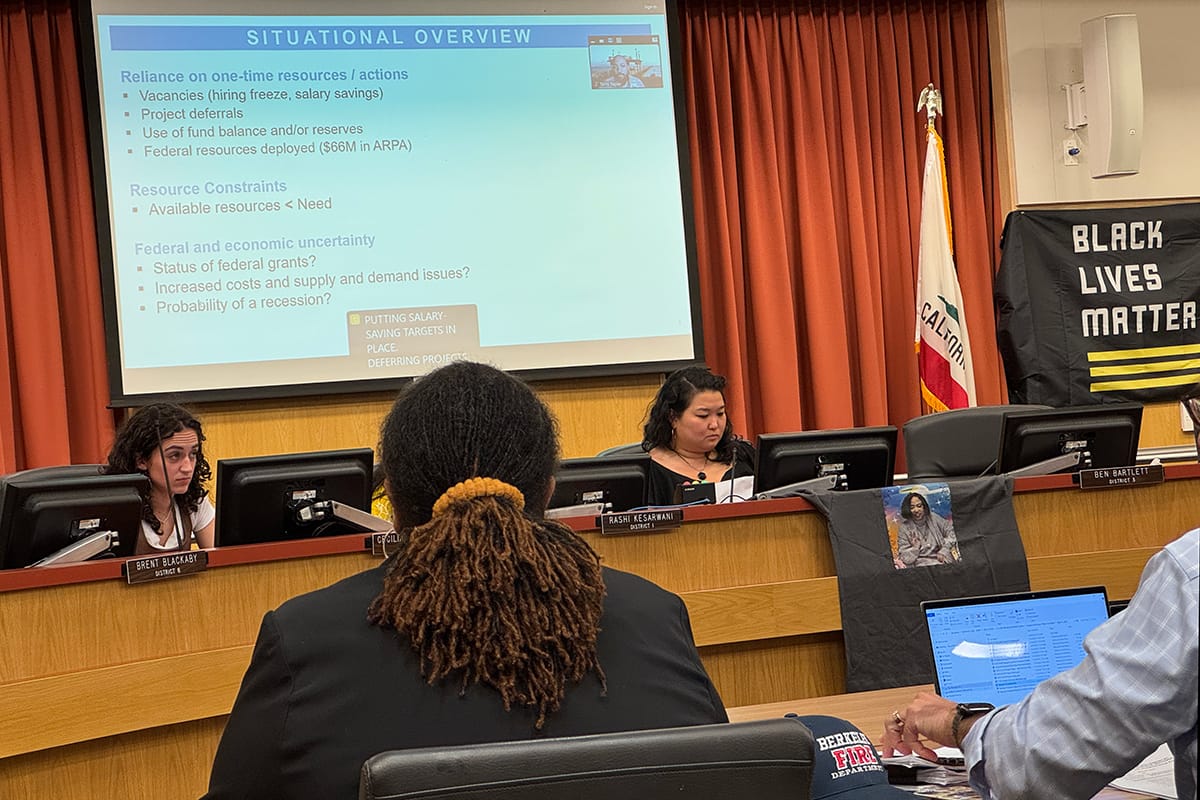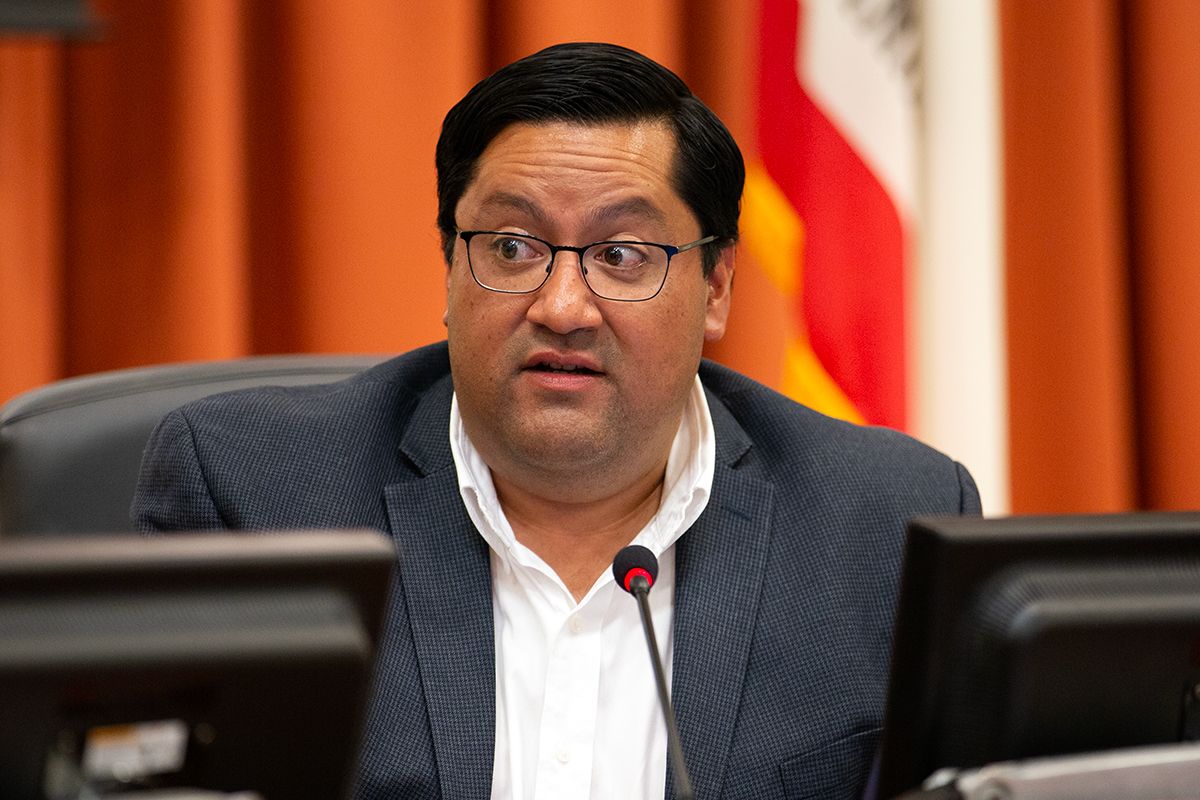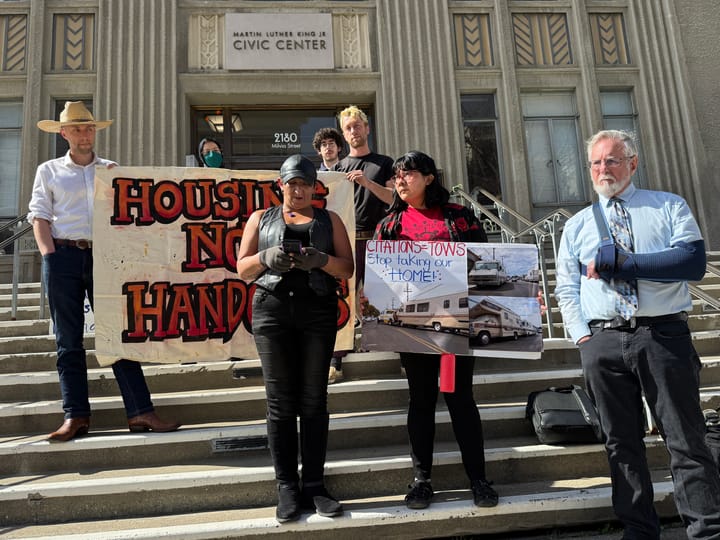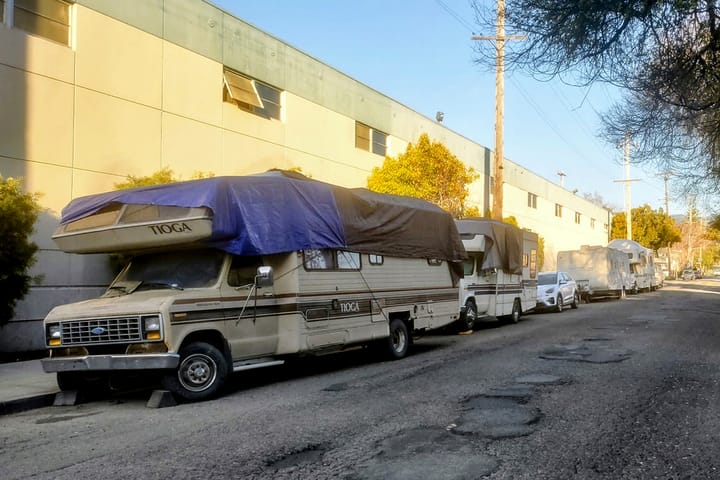Berkeley faces 'tough choices' as budget talks continue
Money for an affordable housing program may be on the chopping block. A citywide hiring freeze is already in place.

The city of Berkeley is looking at a "barely balanced" budget in the next fiscal year — relying on what one official called one-time gimmicks to bridge the gap.
In the years ahead, Berkeley is expected to face even tougher budget decisions as it looks to tackle a structural deficit in the general fund of around $20 million a year, city staff told Berkeley officials Tuesday night.
The meeting was the first budget report before the full City Council, with a vote to adopt the budget set for late June, just before the fiscal year ends.
Tuesday was also the final meeting for budget manager Sharon Friedrichsen, who is moving on to a new role with the city of Emeryville, officials said.
In her presentation, Friedrichsen explained how Berkeley could slash a nearly $30 million deficit to about $126,000 via several balancing strategies, including a citywide hiring freeze expected to save about $9 million; borrowing deeply from city funds related to workers compensation, pensions and IT operations; and pulling back a pledge of $2.5 million from a program for affordable housing.
Staff described the "package of options" as "one-time in nature and not sustainable from a fiscal perspective" into the future.
"Our resources are far shy of our needs," Friedrichsen told officials.
Officials and staff also made it clear that the situation could get worse, between yet-to-be-identified departmental needs and changes at the state and federal levels, with "a likelihood of a recession on the horizon."
"We may have more of a problem to solve than just the $126,000," said Councilwoman Rashi Kesarwani, noting the "tremendous sacrifice" already being made by Berkeley city workers due to the hiring freeze.
Federal cuts could mean another $26 million in losses, if not more, Mayor Adena Ishii said.
Ishii asked her colleagues to review their office budgets for possible savings, including through open staff positions, and said she would do the same.
Council offices, and other sections governed by the charter, such as the city attorney's office and police accountability operations, are not subject to the hiring freeze. But they can elect to take cost-saving measures on their own.
Mayor Ishii said she would work closely with the city manager's office to find charter-office savings.
"I see this as part of the solution," she said, adding that she wouldn't stop there.
City staff noted that most of the increases in projected spending have been driven by personnel costs — salaries and benefits, including health insurance, as well as pension costs.
Berkeley has about $600 million in unfunded liabilities from pension costs along with about $2.5 billion in deferred maintenance, such as street improvements.
On Tuesday night, staff also reminded officials that the marina fund is struggling as is the parking meter fund, with the camps fund only just recovering, and potentially in a precarious spot.
Assistant City Manager Dave White told officials that staff will work, in the months ahead, to find "cost efficiencies" and restructuring strategies that could reduce the ongoing deficit and mean even bigger changes to the status quo.
White told council he wasn't ready to get into those details Tuesday night, but said the changes would require "deep thinking" throughout the municipal organization.
In response to a question from the mayor, White also noted that Measure P, which funds much of the city's work on homelessness, is also running at a deficit.
"We're definitely spending more on Measure P programs and services than revenue we're bringing in," he said.
Most of the public comment Tuesday came from affordable housing advocates pleading with the city to follow through on its pledge to give $2.5 million to the small sites program in the coming year.
The allocation was set to be the second half of a $5 million investment officials made last year.
Berkeley's small sites program helps groups buy and fix up small rental properties and maintain them as permanently affordable.
While advocates and several elected leaders argued that the dollars would play a critical role in expanding local affordable housing options, Councilwoman Kesarwani said Berkeley simply doesn't have the money right now, and that other types of affordable housing dollars go further and help more people.
"We have to make tough choices," Kesarwani said, urging advocates to "come back with the numbers" for other cuts the city might make to preserve small sites funding.
"Convince me that that's a good investment," she said.
Some officials and public speakers also took the position that diverting the small sites money into the general fund would break a promise Berkeley made to voters in 2016.
In response to council questions, staff said the Measure U1 funding used for the program is ultimately general fund money — and can be used to address the deficit.
"It all rolls up to the general fund. That's the rules," said Henry Oyekanmi, the city's finance director. "Everybody needs to understand that."
In his remarks, Councilman Terry Taplin said the moment marked a turning point, with prior council policies "that inhibit revenue generation and remove properties from the tax rolls" coming home to roost.
"There are repercussions for kicking hard choices down the road," he said. "It’s becoming clear that there just isn’t any road left."
"As a city, we have gotten used to spending practices and budget conditions that our fiscal reality can no longer sustain," he continued. "We can turn this around if we correct our course in these upcoming cycles — as arduous as that will be."
What's next with the Berkeley city budget?
On Thursday afternoon, the City Council budget committee is set to discuss the marina fund, police and fire overtime, Measure P and other budget issues.
On June 12, the budget committee will take a closer look at the parking meter fund as well as council referrals and the mayor's budget proposal.
The City Council is set to discuss the budget again June 17 and then adopt it June 24.
See Tuesday's budget presentation, supplemental budget materials and original budget item. Read more about the city of Berkeley budget on the city website.
More coverage on the Berkeley city budget










